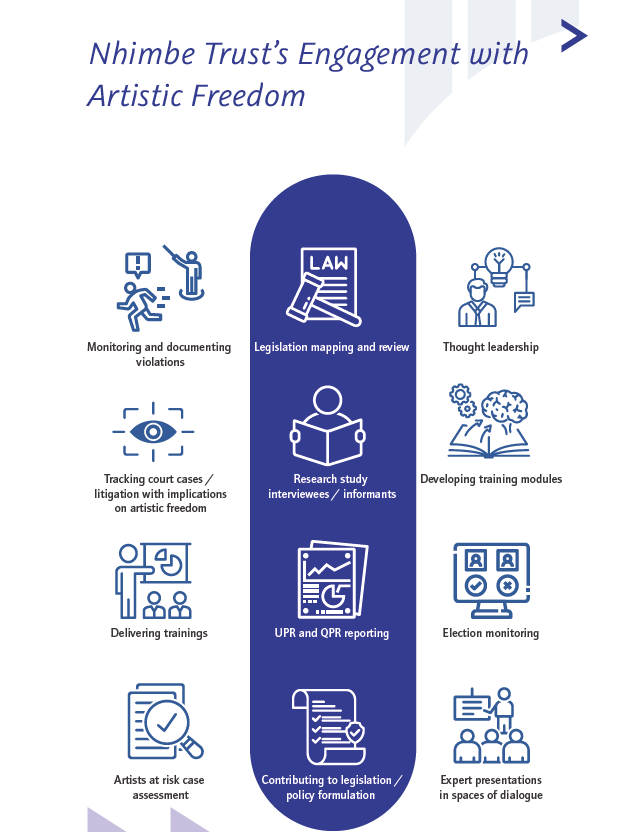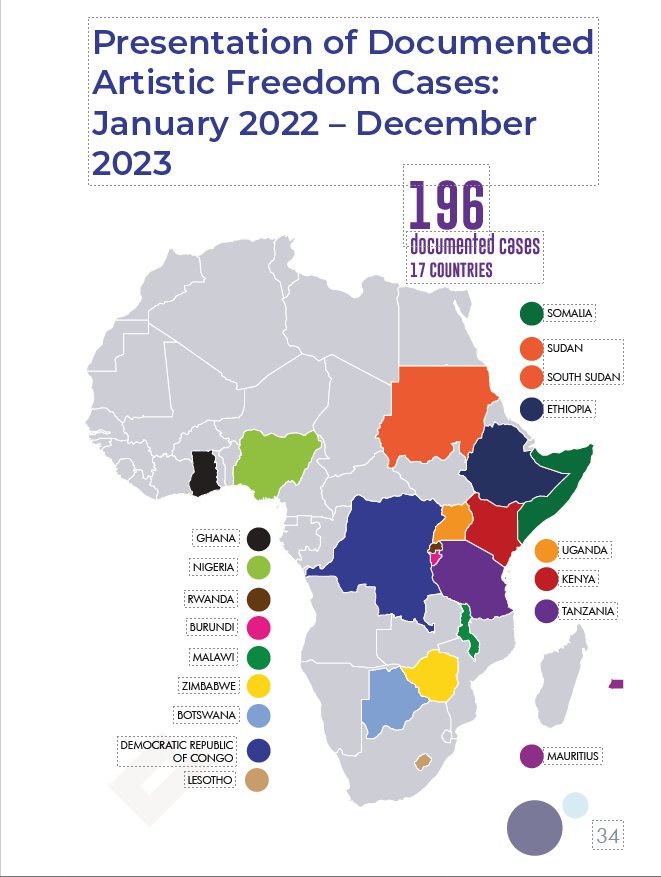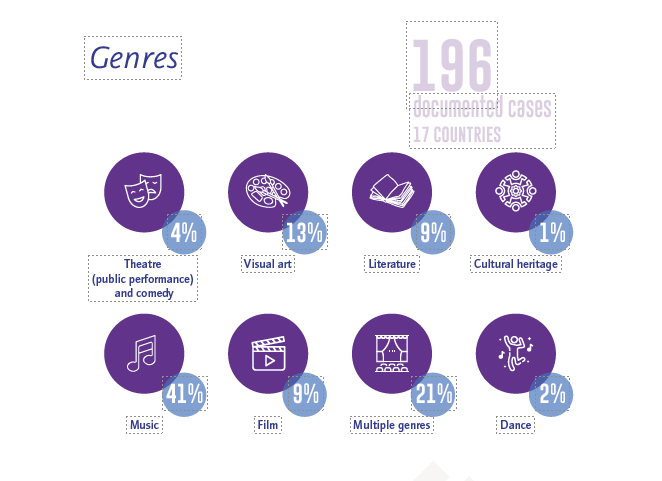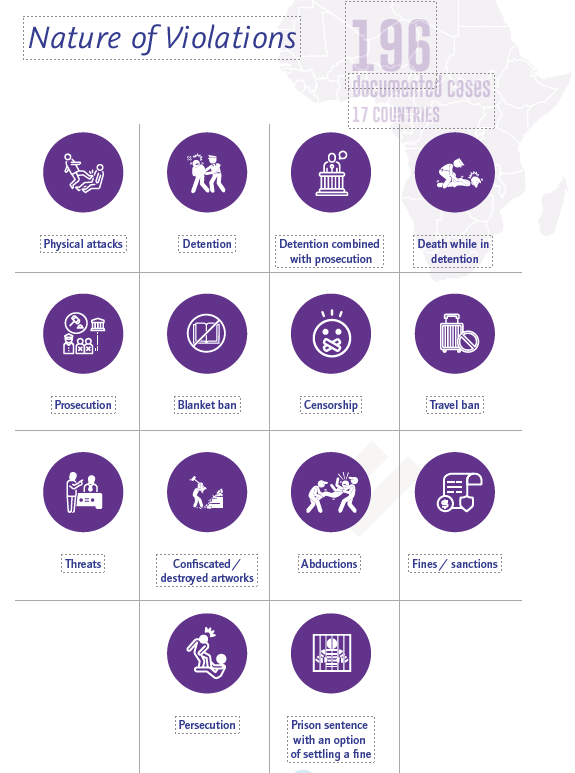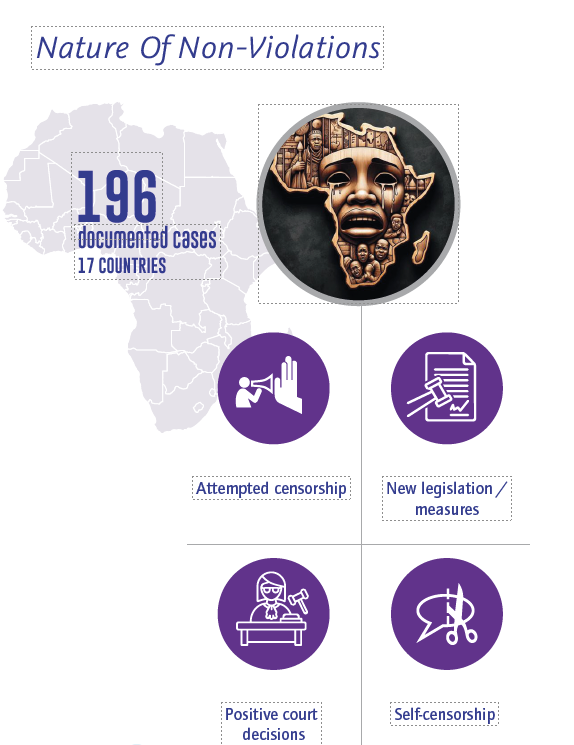Shedding Light on Challenges and Advocating for Change
Artistic Freedom in Focus: A Call for Change of Nhimbe Trust. See website
Nhimbe Trust, a dedicated advocate for cultural rights, has recently published its inaugural report focusing on artistic freedom in the Africa Region. With support from Africalia, Mimeta, and the Swedish Arts Council, this report marks an important milestone in the organization's ongoing efforts to support artists and cultural professionals.
Titled "Artistic Freedom in Focus: A Call for Change," the report meticulously examines cases of artistic freedom violations, highlighting the challenges faced by creators in the region. From censorship to economic obstacles, the report emphasizes the need for policy reforms to protect artistic expression and promote cultural diversity.
Nhimbe Trust's Comprehensive Programme on Artistic Freedom (COPAF) is guided by the UNESCO Convention on the Protection and Promotion of the Diversity of Cultural Expressions. Through COPAF, the organization aims to create a supportive policy environment where artists can work without fear of censorship or reprisal.
The report's findings reveal a troubling trend, with a significant number of violations attributed to government entities. In response, Nhimbe Trust stresses the importance of engaging policymakers and civil society to enact reforms that uphold artistic freedom.
Looking ahead, Nhimbe Trust remains committed to its mission of supporting artists and promoting cultural rights. By addressing emerging challenges and advocating for change, the organization strives to create a more inclusive and vibrant cultural landscape for all.
Nhimbe Trust’s Programme on Artistic Freedom (COPAF) is anchored on and guided by the 2005 UNESCO Convention on the Protection and Promotion of the Diversity of Cultural Expressions. The programme recognises artistic freedom’s unique stature as a conglomeration of rights and fundamental freedoms that include:
The right to create without censorship or intimidation.
The right to have artistic work supported, distributed, and remunerated.
The right to freedom of movement.
The right to freedom of association.
The right to protection of social and economic rights.
The right to participate in cultural life
Violations Recorded
Government: 85%
Private individuals / groupings: 5%
Religious groupings: 4%
Political groupings: 2%
Unknown: 2%
Private entities under pressure: 1%
Criminal gangs: 1%


